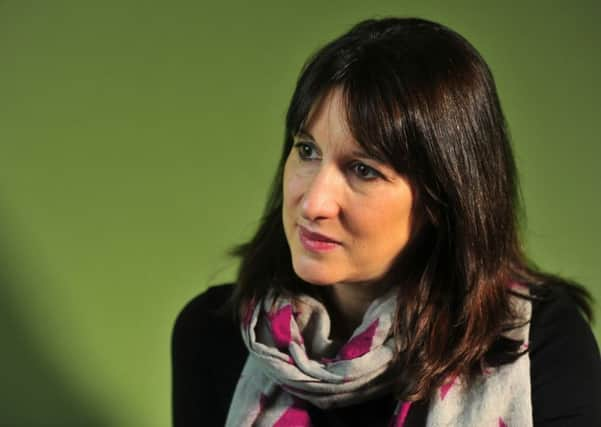Rachel Reeves MP: Why women must fight on a century after winning the vote


Women finally gained the right to vote and to stand as Members of Parliament a century ago.
Many believed the day would never come. It was a long road and the fight for justice was at times deeply bitter.
Advertisement
Hide AdAdvertisement
Hide AdBut, on February 6, 1918, the Representation of the People Act became law, enabling women over 30 with property to take their rightful place at the ballot box for the first time.
There can be no under-estimating of how this seismic moment changed our history.
Behind the sweeping change stood the proud Suffragettes and Suffragists, whose celebrations were muted at the time, as the Great War still raged in Europe.
While the Suffragists (led by Millicent Fawcett) used constitutional methods, the Suffragettes (led by Emmeline Pankhurst) used actions of civil disobedience to pressurise the government to give women the vote.
Advertisement
Hide AdAdvertisement
Hide AdThe centenary of this achievement allows us all a great opportunity to reflect on the legacy of the suffrage movement.
It is a chance to reflect upon the further changes which are needed to bring about genuine equality for women.
There can be no denying that the last hundred years has seen huge progress in British society.
A series of legislative battles have been fought and won by women MPs: equal guardianship by Nancy Astor and Margaret Wintringham in 1920; family allowances by Eleanor Rathbone in 1945; equal pay by Barbara Castle in 1970; and paid maternity leave by Harriet Harman in 1999.
Advertisement
Hide AdAdvertisement
Hide AdWe have also seen a surge in the number of females reaching the high echelons of politics, science, business and sport.
In a fitting tribute to Fawcett’s battle to extend the vote to women, a statue of her will be unveiled in Parliament Square opposite the House of Commons this year.
As the MP for Leeds West, I am proud of the role the city’s women played in the great suffrage movement. Leonora Cohen, who was born in Hunslet and lived in Leeds for most of her life, acted as a bodyguard for Emmeline Pankhurst and became known as the ‘Tower Suffragette’ after having smashed the display case of the British Crown Jewels in the Tower of London in 1913. A blue plaque is on display at her old home near Leeds University.
Bramley’s Mary Gawthorpe and Headingley’s Isabella Ford were actively involved in the fight to get the vote for women.
Advertisement
Hide AdAdvertisement
Hide AdHowever, the first general election in which women were allowed to vote in 1918 saw just one woman elected – Constance Markiewicz, a fiery revolutionary socialist from Sinn Féin who refused to take her seat in line with her party’s policy.
The Commons had to wait until the Plymouth Sutton by-election in 1919 for the first woman MP to take her seat – Lady Nancy Astor, an American-born society hostess whose husband had been the MP for the seat before being elevated to the House of Lords.
Women MPs were continually undermined in parliament both politically and physically in the years that followed. When trying to get to her seat in the chamber, Conservative MP Nancy Astor was physically intimidated and blocked by male colleagues. As Labour MP Edith Summerskill described, Parliament felt ‘like a boys’ school which had decided to take a few girls’.
In my biography of Alice Bacon, the first female MP in Leeds in 1945 and the joint first in Yorkshire along with Muriel Nichol in Bradford South, I wrote about some of the challenges she faced. It took another 65 years before I was elected as only the second female MP to represent the city.
Advertisement
Hide AdAdvertisement
Hide AdMy election and the growing number of female MPs in Parliament is down to the amazing work of Harriet Harman and women like her who have simply refused to give up fighting for women’s rights.
In 1918, it would have been inconceivable for a woman MP to become Prime Minister. Now, we have had two women Prime Ministers. Hopefully, we will be able to add a female Labour PM to their ranks before too long.
The total number of women MPs at Westminster now stands at 208 out of 650 MPs. When Harriet Harman was first elected in 1982, there were only 10 female Labour MPs and just one from Yorkshire.
However, in the 2017 general election, the number of Yorkshire women surged so that 20 out of 37 of Yorkshire’s Labour MPs are now women. That is a great record and one of which I am proud.
Advertisement
Hide AdAdvertisement
Hide AdYorkshire is also making its mark with more women council leaders proportionately than the rest of the UK – with Judith Blake in Leeds, Susan Hinchcliffe in Bradford, Julie Dore in Sheffield and Ros Jones as Executive Mayor in Doncaster.
But there is still much more work to be done to ensure there is real equality, fairness and justice for women.
I was shocked at the blatant injustice of the gender pay gap at the BBC.
Then, there was the disgraceful behaviour towards young female workers that the Financial Times uncovered at the men-only Presidents Club dinner at a Mayfair hotel – revealing the appalling sexism that is apparently still prevalent in parts of the City.
Advertisement
Hide AdAdvertisement
Hide AdAt present, more than two-thirds of Westminster’s MPs are men. That’s hardly representative of women who make up half the population.
Let us rightly celebrate the first British women who risked their lives and freedom to get the vote.
But let us remember that our fight for equality goes on. Women who still face discrimination and unfair treatment in every walk of life should never stop fighting until the days comes when we can all enjoy genuine equality and justice.
Rachel Reeves is the Labour MP for Leeds West.